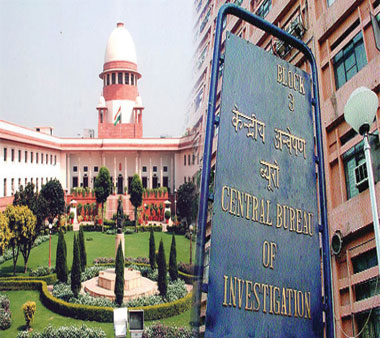SC hauls CBI, govt over coals
The Supreme Court on Tuesday directed the CBI to disclose changes made in its first status report on investigation into the coal scam and at whose instance the amendments were done.
The apex court also described as “very disturbing” CBI director Ranjit Sinha’s admission that the report was shared with the law minister and the Prime Minister’s Office and Coal Ministry officials.
A three-judge bench presided over by Justice R M Lodha wanted to know why Additional Solicitor General H P Raval, appearing for the CBI, made an “emphatic assertion” that the draft was not shared with anybody. Asserting that it would liberate the CBI from political interference, the court questioned whether Law Minister Ashwani Kumar had the right to go through the investigation report.
Raval resigned later in the day. The additional solicitor general’s resignation had become imminent after his letter to Attorney General G E Vahanvati stating that he was being made a scapegoat. Raval had claimed that the draft of the status report was perused by Kumar and Vahanvati.
Action against Kumar will depend on the court’s observation on the next date of hearing. Meanwhile, reacting to the apex court’s strong observation, Prime Minister Manmohan Singh said: “I have not studied the SC’s observations. Whatever action is called for, will be taken after studying it.”
Sinha, on his part, claimed to have submitted to the apex court the original and amended drafts of the status report.
In an affidavit on April 26, Sinha had admitted that the draft of the status report submitted to the court on March 8 was shared with Kumar and one joint secretary-level officer each from the PMO and the Coal Ministry.
The court observed that the affidavit was “silent on the changes and its effect.” It told the CBI to file a “candid and truthful” affidavit by May 6, explaining why the draft report was shared with the political executive and officials. “What is the procedure followed by the CBI as per its manual/guidelines for sharing the status report of its ongoing investigations,” the court asked, while framing six queries for the CBI to respond in its affidavit.
The bench, also comprising justices Madan B Lokur and Kurian Joseph, was concerned over the CBI facing “interference” in its investigation.
The bench said: “There is a serious allegation of criminal conspiracy of influencing the probe. There is an erosion of the trust reposed in you (CBI). How are we going to ensure that the CBI is an independent body. Our first exercise will be to liberate and insulate the CBI from political interference.”
What has the Central government done regarding independence of the CBI ever since Vineet Narain’s 1997 judgment wherein the apex court made it clear that the executive could not interfere with the course of investigation, the court asked.

